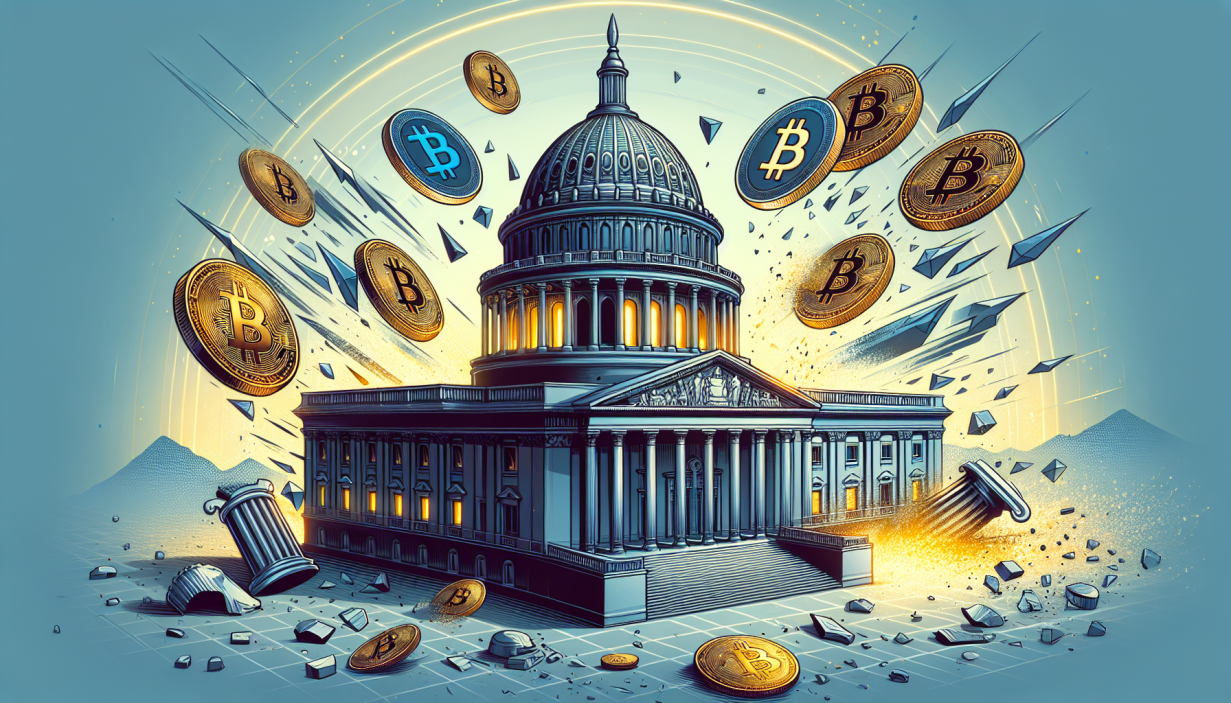Inspired by 'The Bitcoin Standard', Lawmaker Seeks to Abolish the US Fed
The bill, known as the 'Federal Reserve Board Abolition Act,' seeks to dismantle the US' central banking system
June 14, 2024 05:30 AM
Reading time: 2 minutes, 45 seconds
TL;DR US Congressman Thomas Massie has reintroduced legislation to abolish the Federal Reserve, inspired by the book 'The Bitcoin Standard'.

US Congressman Thomas Massie has reintroduced legislation to abolish the Federal Reserve, a move he says was inspired by a seminal book on Bitcoin.
The bill, known as the 'Federal Reserve Board Abolition Act,' marks the first attempt in a decade to dismantle the nation's central banking system. Massie introduced it in May, and it is currently in the initial phases of review by the House.
Massie revealed during a podcast appearance on June 13 with author Tom Woods that the initiative has garnered significant support over the past decade, contrary to his initial thinking. He said:
'The number of cosponsors for the bill to end the Federal Reserve in 10 years has gone up 10x, which is remarkable.'
Inspiration from 'The Bitcoin Standard'
Massie also revealed that he decided to reintroduce the controversial bill after listening to Saifedean Ammous's audiobook, The Bitcoin Standard.
According to Massie, the 'first 80% of the book' explains the world's monetary system and how it functions. He added: 'The first 80% of it is not about Bitcoin, it's about money, it's about 'what is money?' He [Ammous] has to lay that down before explaining Bitcoin because you can't assume everyone knows what money was.'
'The Bitcoin Standard,' published in 2018, argues that Bitcoin possesses superior monetary properties to traditional fiat currencies, particularly its scarcity enforced by a maximum supply of 21 million coins.
Ammous attributes various social and economic issues, such as reduced household savings and inflated asset prices, to the US abandoning the gold standard in 1971 -- which many consider the beginning of the 'fiat scam' that allows central banks to print unlimited amounts of money.
Themes and Support
Massie's bill echoes these themes, claiming Federal Reserve policies disproportionately benefit the wealthy and erode retirees' savings. According to the bill: 'Retirees see their savings evaporate under the Fed's policies, which benefit the wealthy and connected.'
The proposed legislation abolishes the Federal Reserve Board of Governors and the 12 regional Federal Reserve banks, effectively repealing the Federal Reserve Act 1913.
Massie argues that the Fed's policies, particularly during the COVID-19 pandemic, have led to severe inflation and economic instability. He said during the podcast: 'During COVID, the Fed created trillions of dollars out of thin air and loaned it to the Treasury Department to enable unprecedented deficit spending. By monetizing the debt, the Fed devalued the dollar and enabled free money policies that caused the high inflation we see today.'
Strong Political Backing
Massie's bill has garnered support from 21 cosponsors, including notable Republicans like Rep. Lauren Boebert, Rep. Marjorie Taylor Greene (R-Ga.), and Rep. Matt Gaetz (R-Fla.).
The bill's introduction follows a Twitter poll conducted by Massie, in which 86% of over 115,000 respondents supported the idea of abolishing the Fed—reflecting significant public discontent with the central bank's operations.
Massie's move is part of a broader trend of criticism against the Fed, which has historically faced scrutiny over its impact on the economy and its perceived lack of transparency.
The bill also revives efforts initially led by former Congressman Ron Paul, who introduced similar legislation in 1999 and reintroduced it in 2013.
Despite its potential to resonate with specific segments of the public and lawmakers, the bill is expected to face substantial opposition in Congress, where the Fed is seen by many as a critical institution for managing the nation's economy.



